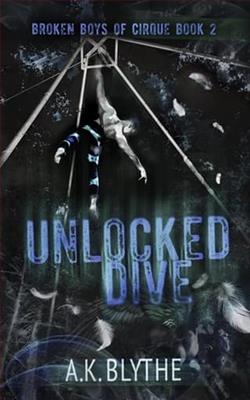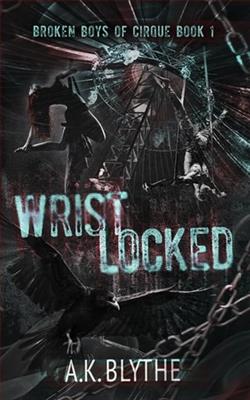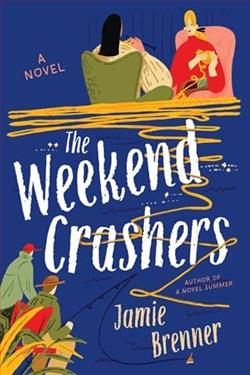Page 117 of Falling for Mr. Ruthless
"I'm here." The words emerge without thought. The truest thing I've ever said.
"Is Tanya sick?"
Chanel's breath catches audibly. Her hands go still on the glass of water she's filling. We haven't discussed what to tell him—haven't had the luxury of planning, of constructing comforting fictions.
I crouch to his eye level, one hand resting on his knee. No evasion. No softening of truth into something unrecognizable. Just calibration for a seven-year-old's understanding.
"Yes. But not the kind of sick that medicine fixes easily." I hold his gaze, steady and direct. "She needs special help that we can't give her. That's why we had to leave."
He absorbs this, small brow furrowing—processing in that methodical way he inherited from me, that careful dissection of information into categories that make sense.
"Is she mad at me?"
"No." Chanel moves beside us, hand settling on his shoulder. "She's confused about a lot of things. But none of this was your fault. None of it."
He nods, accepting this with the strange resilience of children. Their capacity to process trauma and keep moving forward. To understand just enough to feel safe without drowning in details adults can barely navigate.
"Can I have peanut butter on my toast?"
The question lands like grace between us—so ordinary, so grounding, so perfectly incongruous with the day's events that I nearly laugh. Instead, I press my forehead briefly against his, an animal gesture of connection older than words.
"Yes. And honey too, if you want."
I rise, reaching for the jar. Behind me, Chanel moves with liquid grace, retrieving plates, checking the kettle, the dance of domestic partnership we performed for six years before everything fractured. Our bodies remember what our minds have tried to forget: how to occupy space together, how to anticipate motion, how to build synchronicity from proximity.
We feed our son in silence broken only by the clink of cutlery against plates, the soft humming Chanel doesn't seem aware she's making—an old lullaby her mother sang, that she used to sing to Jaden as an infant. I watch her hands as she cuts fruit into perfect quarters, as she pours water, as she wipes crumbs from the counter. Hands that took down a woman who threatened our child. Hands that carried a knife in her pocket but chose not to use it.
Hands that could have called me for help, but didn't need to.
When Jaden finishes eating, fatigue descends on him like a physical weight. His eyes grow heavy, shoulders slumping, body swaying slightly on the stool.
"Bedtime," Chanel says, no room for negotiation in her tone. "Bath tomorrow. Teeth now."
I lift him again, this body that carries both our DNA, this miracle we created before everything else fell apart. Up the stairs to the guest bathroom, where I stand in the doorway while he brushes his teeth, unwilling to let him out of my sight even for these mundane tasks. Even here, in the fortress I've built seventy stories above the city.
Chanel appears beside me, silent as a ghost, watching our son through the same lens of protective vigilance. Not speaking. Not touching. Just witnessing— together—this ordinary moment rendered extraordinary by how close we came to losing it.
When Jaden finishes, he doesn't ask which bedroom, doesn't question where he'll sleep. Just walks to the master suite as if drawn by instinct, by the memory of nights spent between us when he was younger, when we were still something that could be called family without qualifiers.
We follow, three bodies moving toward the same destination without discussion. Jaden climbs onto the bed still dressed, too exhausted for pajamas or pretense. Chanel sits beside him, fingers stroking through his hair, across his forehead, down his arm—checking, cataloging, confirming his solidity.
I stand at the foot of the bed, suddenly uncertain of my place in this tableau. Wanting to join them. Afraid to presume. To claim space not offered.
Chanel looks up, eyes meeting mine across the expanse of Egyptian cotton that once held our tangled limbs, our shared breath, our whispered confessions. Her hand extends—not reaching, just opening. An invitation, not a demand.
Permission to exist in the same space. To breathe the same air. To share the gravity of what almost happened and the miracle of what didn't.
I move around the bed, settling carefully on the opposite side. Jaden between us like a bridge, like a sacred thing entrusted to imperfect guardians.
"Will you tell me a story?" he asks, voice already slurring with approaching sleep.
Before I can respond, Chanel speaks. "Your father tells the best stories. Did you know that?"
Something shifts in my chest—recognition, remembrance. The nights early in our marriage when she'd ask for stories. When she'd curl against me in darkness and whisper,"Tell me something I don't know about you."When my voice in shadow became the conduit for truths I couldn't speak in daylight.
Jaden turns expectant eyes to me, waiting. Trusting. Believing in a capacity I'd forgotten I possessed.
"Once," I begin, voice lower than intended, "there was a boy who built towers out of anything he could find. Blocks. Books. Playing cards. He built them higher and higher, trying to reach the sky."















